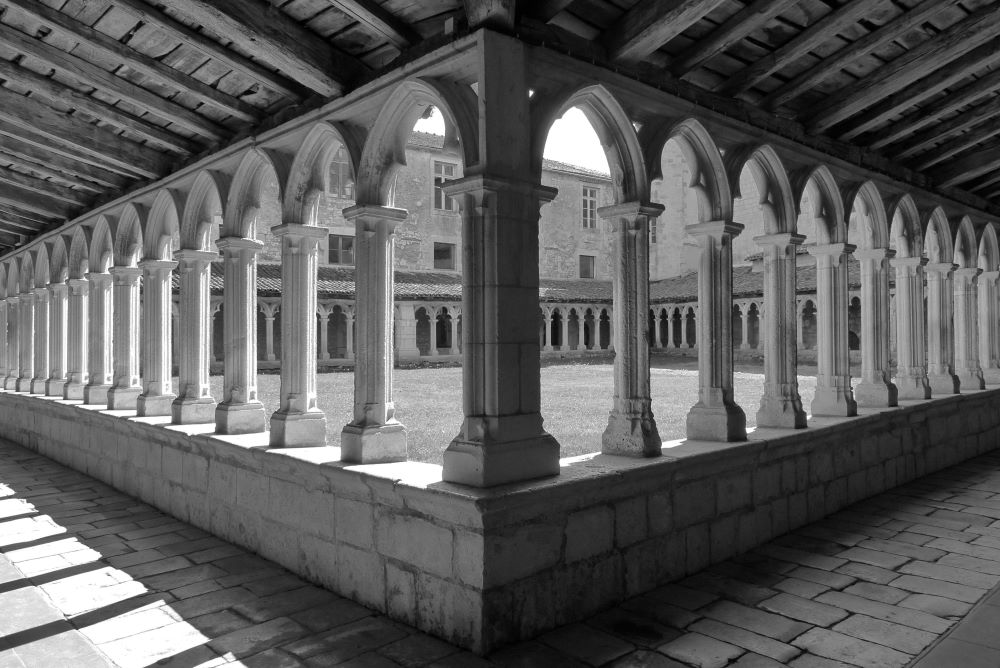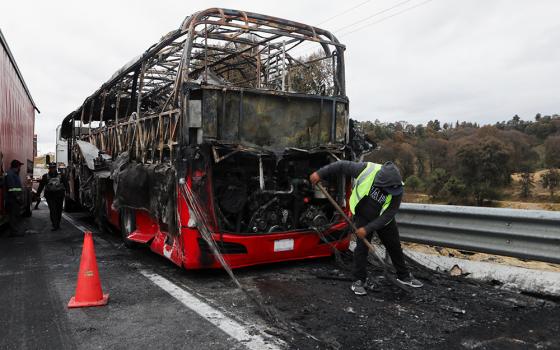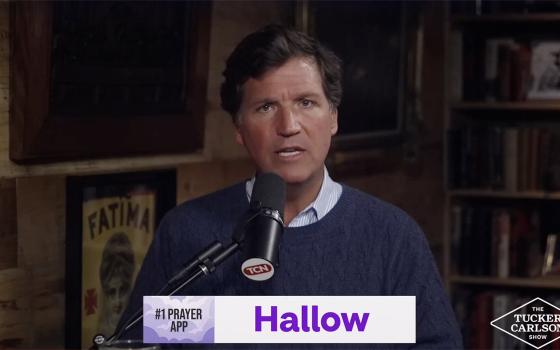
(Unsplash/Ben Berwers)
Pope Francis urged consecrated men and women to become "bearers of light" in today's world through their faithful witness of the evangelical counsels. Speaking to thousands of religious during first vespers for the World Day of Consecrated Life on Feb. 1, the pope outlined how poverty, chastity and obedience can transform society through God's love. He further went on to say that evangelical poverty liberates religious from worldly attachments, enabling them to become "a blessing for others" by embracing "simplicity, generosity, sharing and solidarity." He warned against the dangers of "selfishness, greed, dependence, and violent use" of material goods.
As I engage with religious in and around the globe, I feel pained to observe that unfortunately, many of us, religious women and men, are still living in ivory towers, unaffected by the world around us. We have, in the name of spirituality. stopped really reflecting, living monotonous lives with no zeal or fire left within us.
The pope's message is perhaps the crux of what we religious are called to be and to become. But to be "bearers of Light," there must be a fire within; our hearts have to be ablaze with the Light. We need to keep the fire burning if the Light is to shine.
Alas! We have got caught up with the old understanding of the evangelical counsels. We look at them as something we are giving up, rather than something we are freed from to be at the service of the world. There are so many of our practices which we need to review and change so that we are free and available. If the controlling factor prevents us from being available for mission, then we need to question such practices.
We also must review the language we use. For example, when we use the word "Superior," it implies the others are inferior. What about using terminologies such as "community," "province," "congregation leader"? Some international congregations have made these changes, but not at the local level, especially in India.
Language denotes our thought process. Unconsciously, we operate from the realm of "I know, you don’t know." It's the power game, the controlling factor. These are important shifts we need to make in the manner in which we organize ourselves.
Advertisement
Some of the structures we put in place also need to be enabling, freeing and available for mission. How can we become "the wake-up call" for the world when we not know the world? When people are free, we are indoors praying or in our community activities. So, from where do we get the smell of the sheep? Definitely not by sitting behind closed doors, having a myopic view of our world.
As the Indian poet Rabindranath Tagore wrote:
Leave this chanting and singing and telling of beads!
Whom dost thou worship in this lonely dark corner of a temple with doors shut?
Open thine eyes and see thy God is not before thee!
God, the poet writes, "is there where the tiller is tilling the hard ground … Put off thy holy mantle and even like him come down on the dusty soil!"
This says it all. Can we then become the edge walkers? Can we find our God in the lonely eyes, in the homeless woman who worries for her children, in the trafficked young woman who is calling out for help, in the worker who is seeking work and just wages, in the farmer who tills the soil and has his dreams shattered because the crops have failed?
Can we move out from the confines of security, throw in our all for these our sisters and brothers who are seeking a listening ear, warmth of love, a friendly smile? This is the new evangelization, to be with people in their struggles, their worries. We do not need answers; we need to go with the emptiness of our poverty to be touched by their lives. We do not need to do; we need to allow them to transform us. Can we be such edge walkers? Like Martha, we have been worrying about doing; maybe we have to become … become Light … become pilgrims of Hope … unafraid to embrace the unknown, befriend people who are yearning to be recognized, to feel that they matter.
What better opportunity than this Jubilee year, which is beckoning us to bring hope, to set in a new era. As Joan Chittister says in her book The Fire in these Ashes: A Spirituality of Contemporary Religious Life, "We have to find the fire is the ashes, in the embers … we have to fan to flame the fire within. This small band of consecrated women and men can truly transform our world. Let us not be afraid of walking on the edges … let us be filled with hope to take that one first step … "
The rest will follow. Let's throw our nets into the sea of the world and be surprised by the catch.







